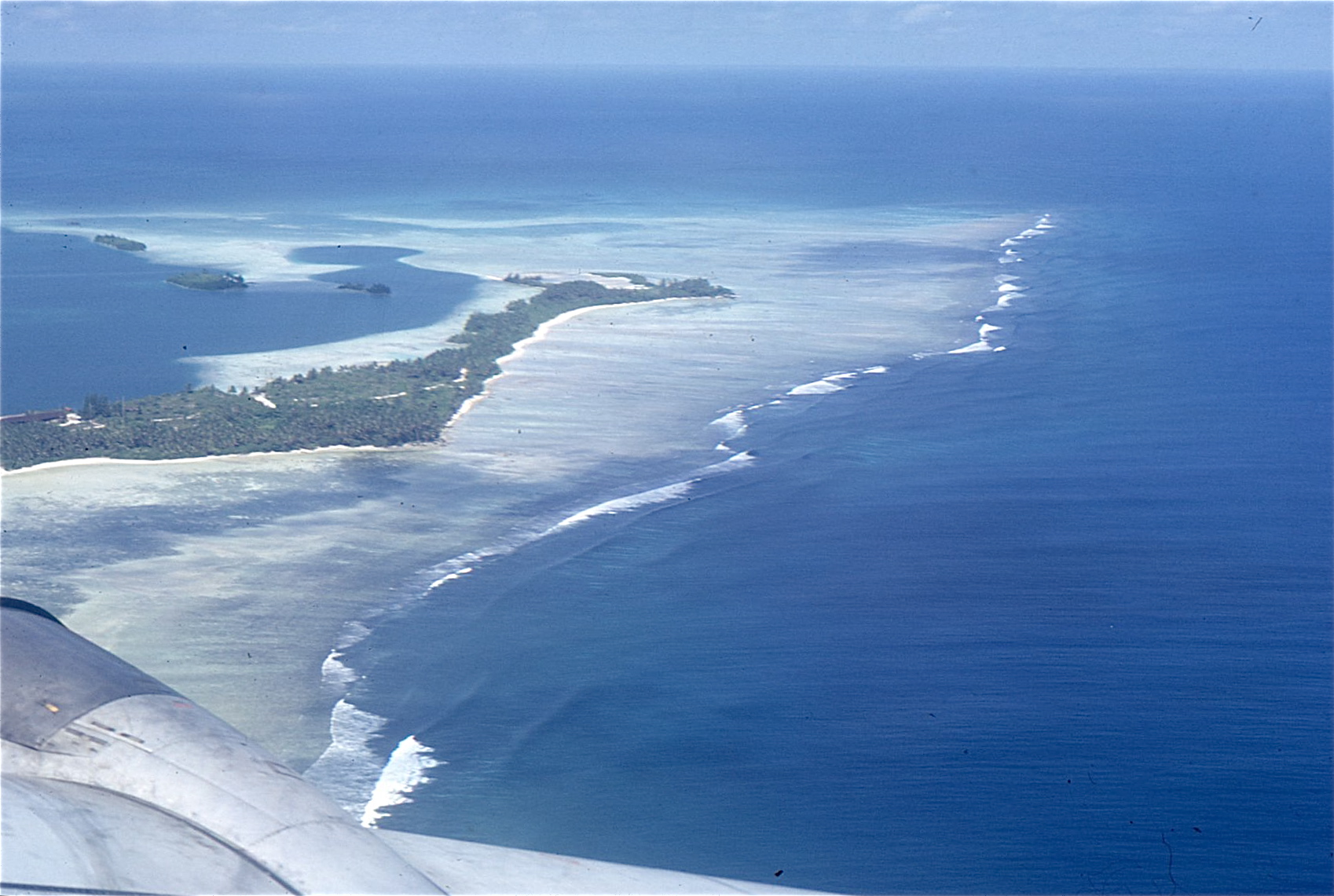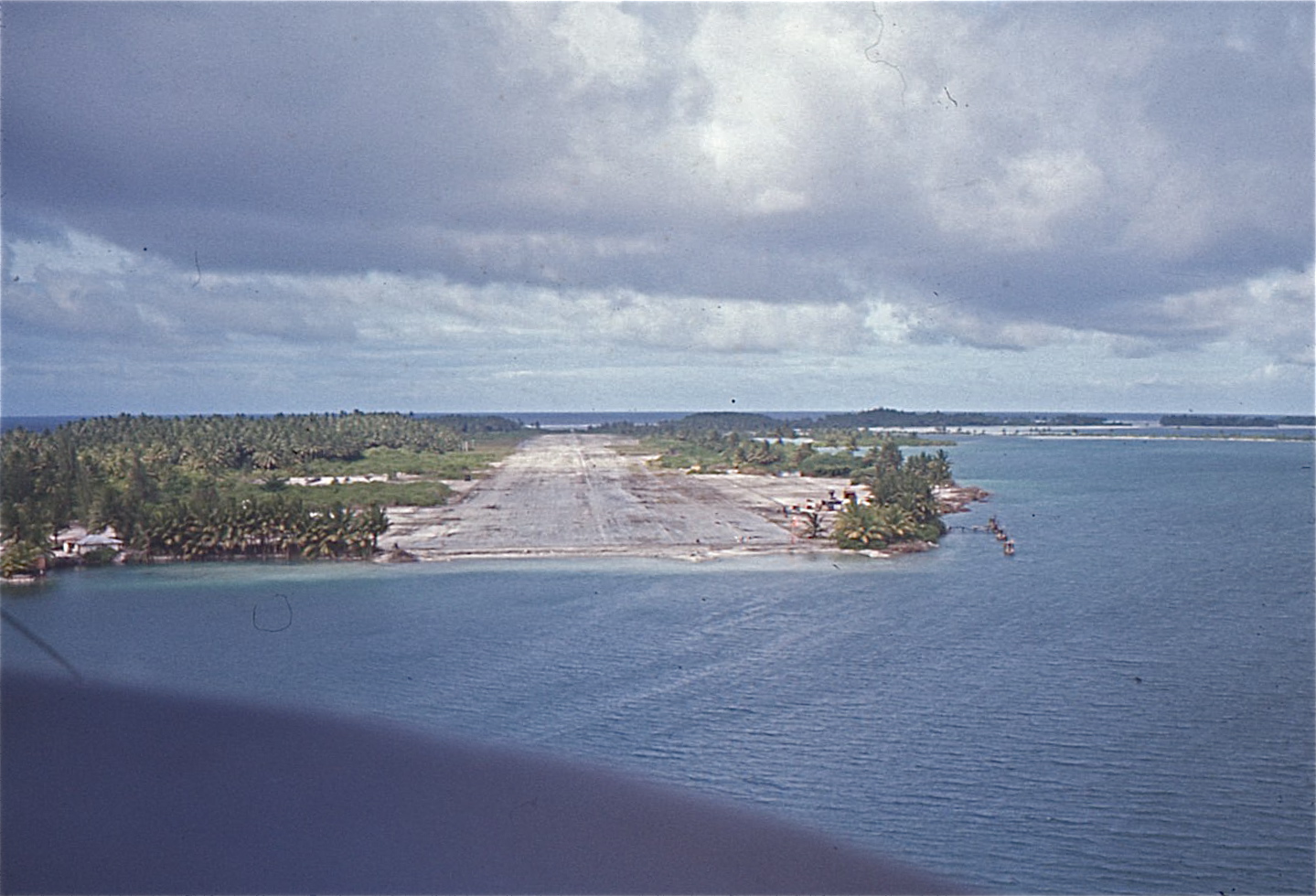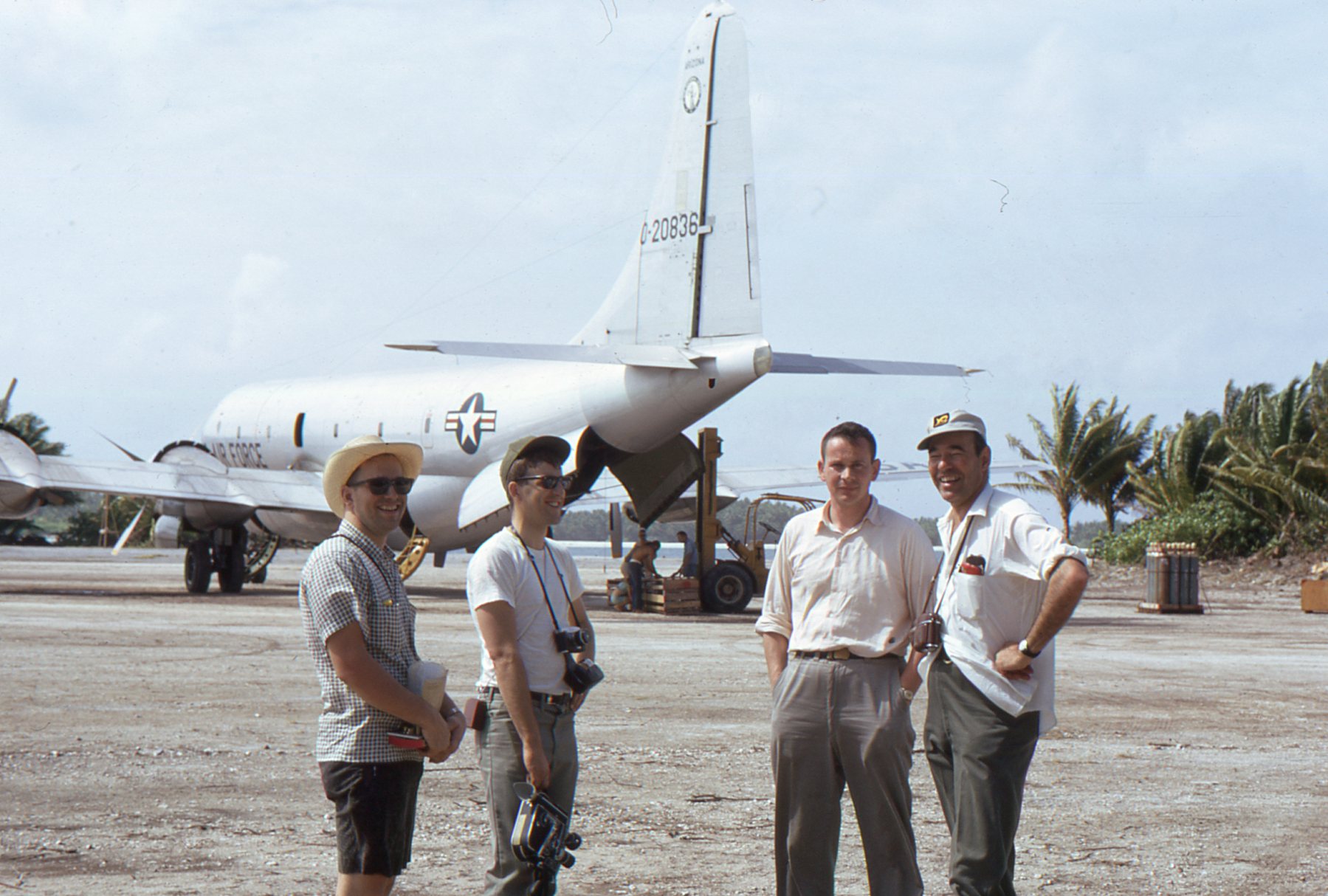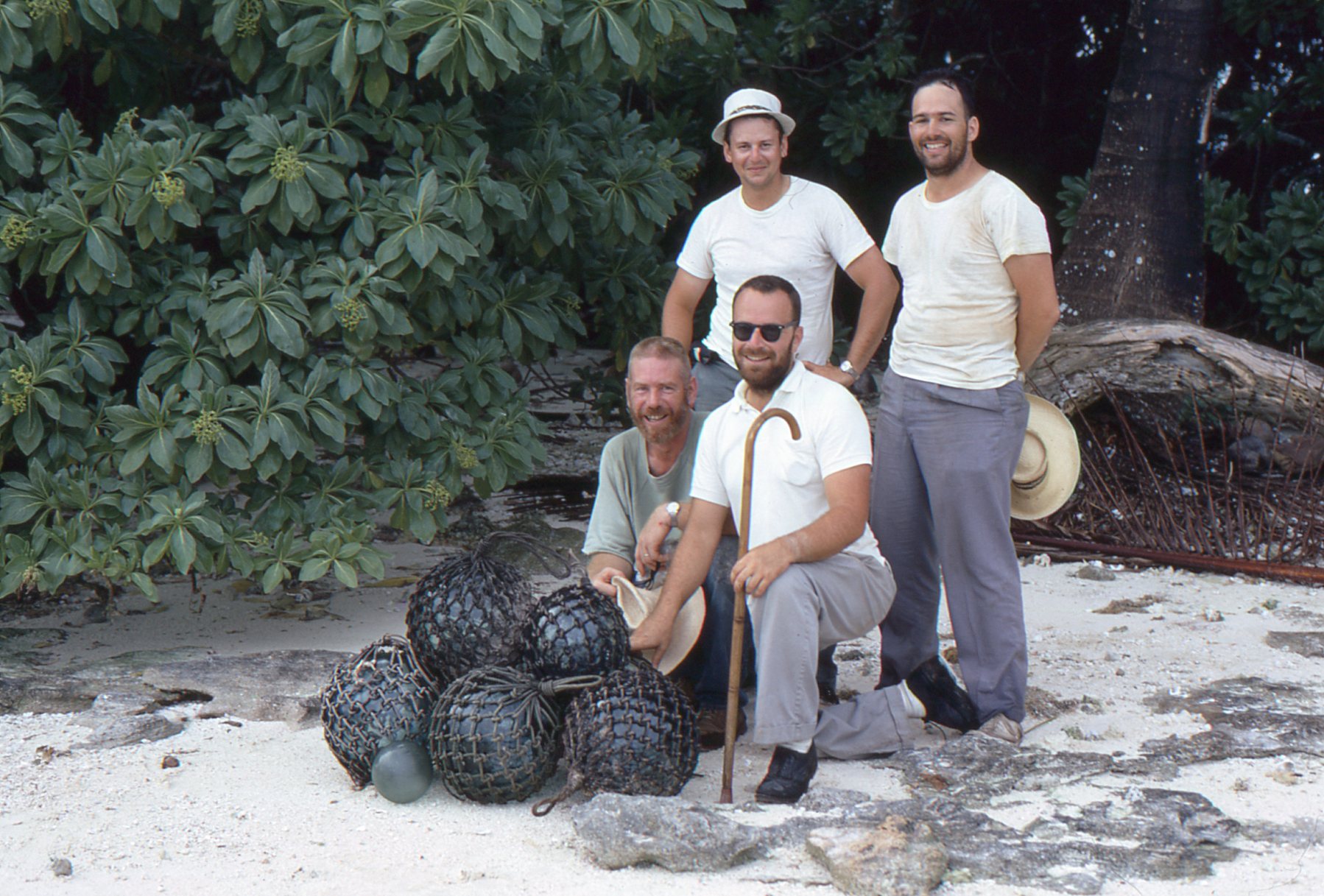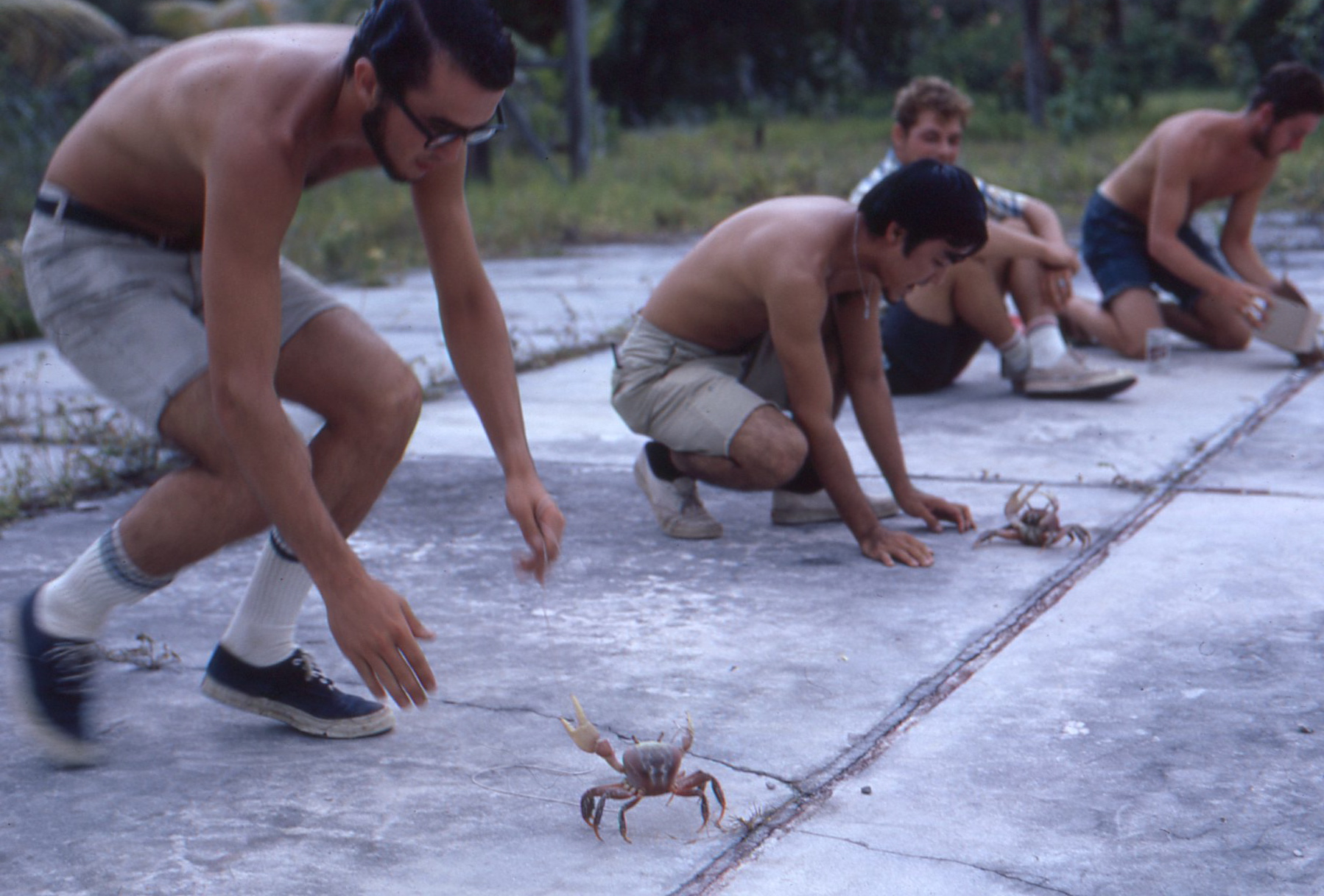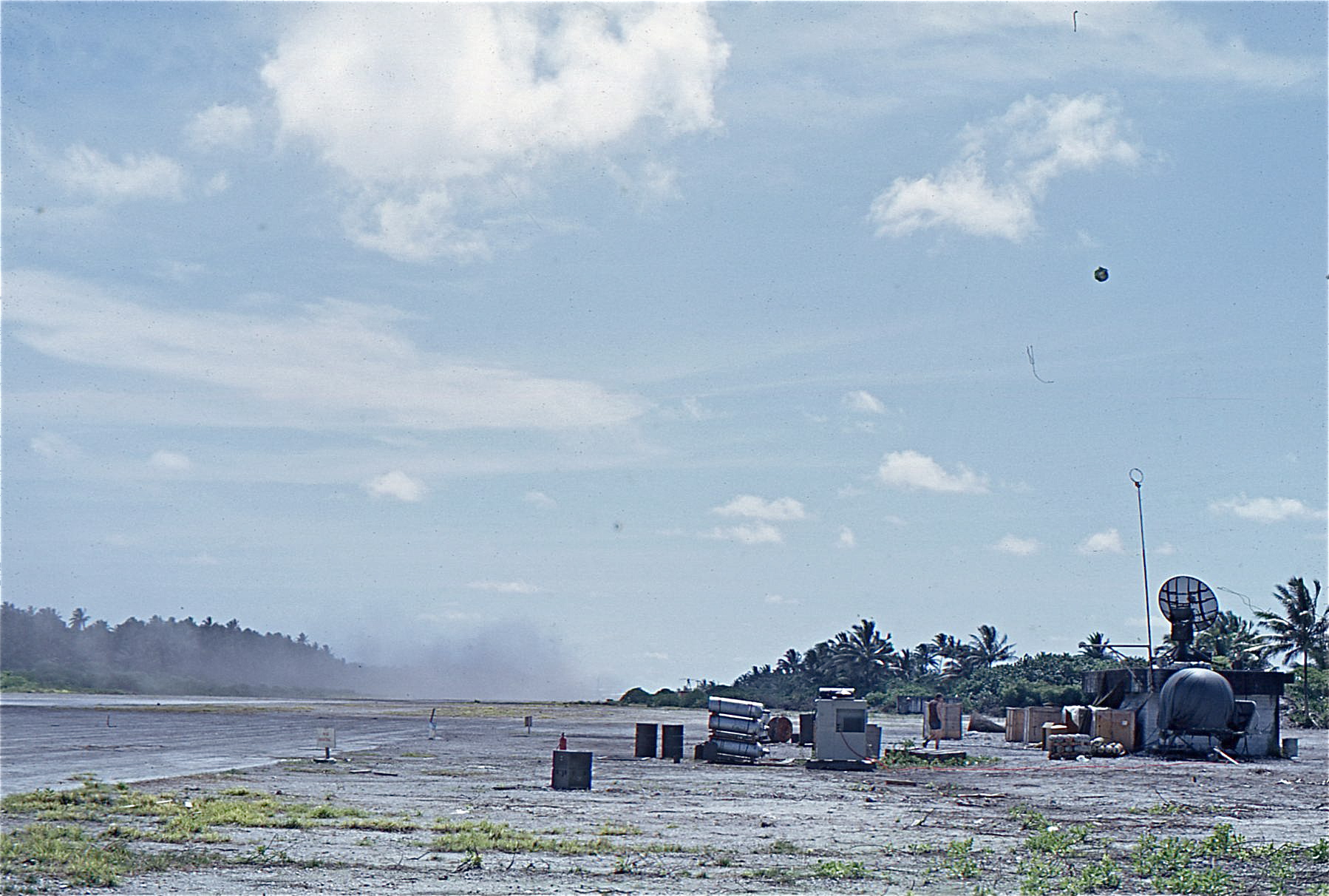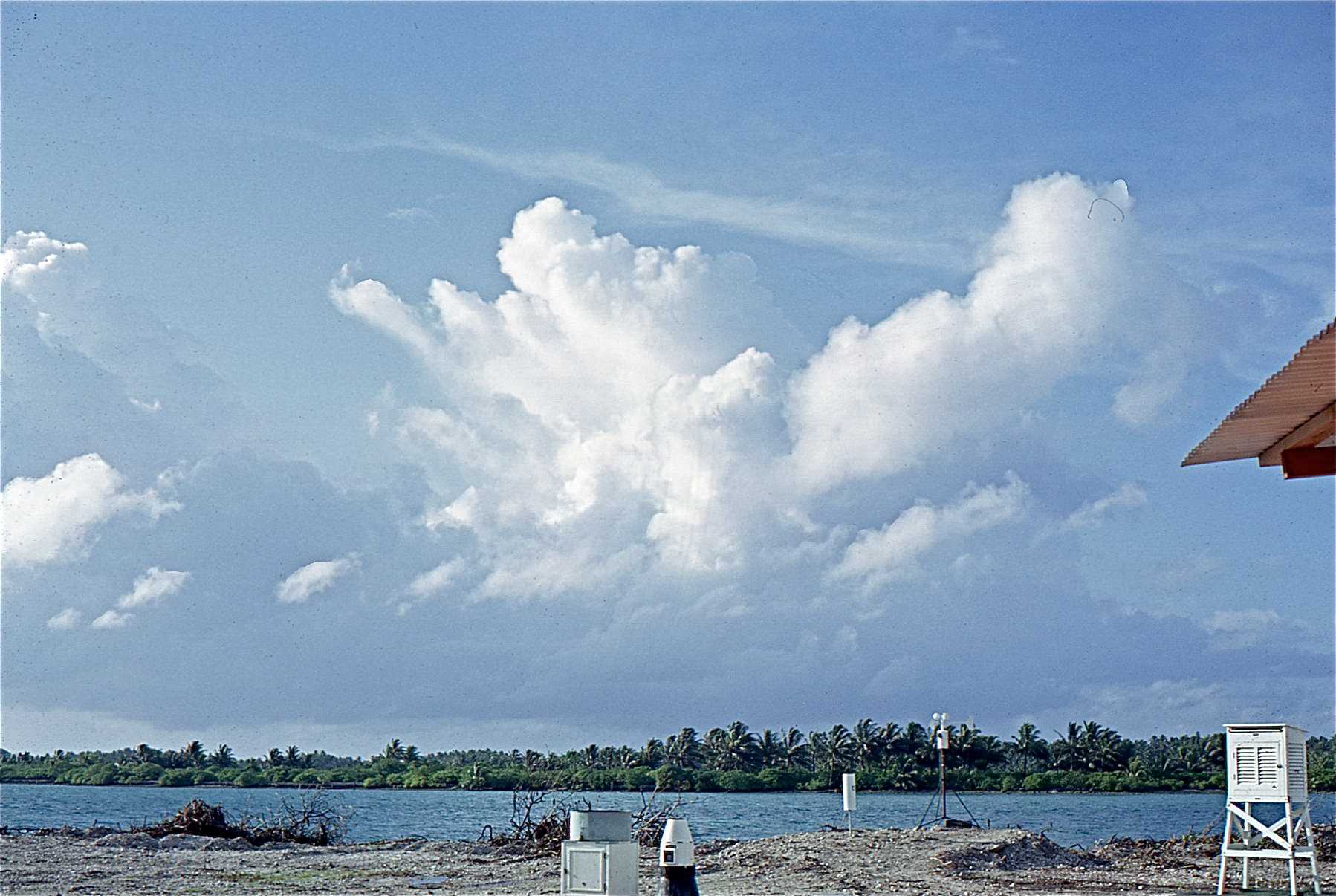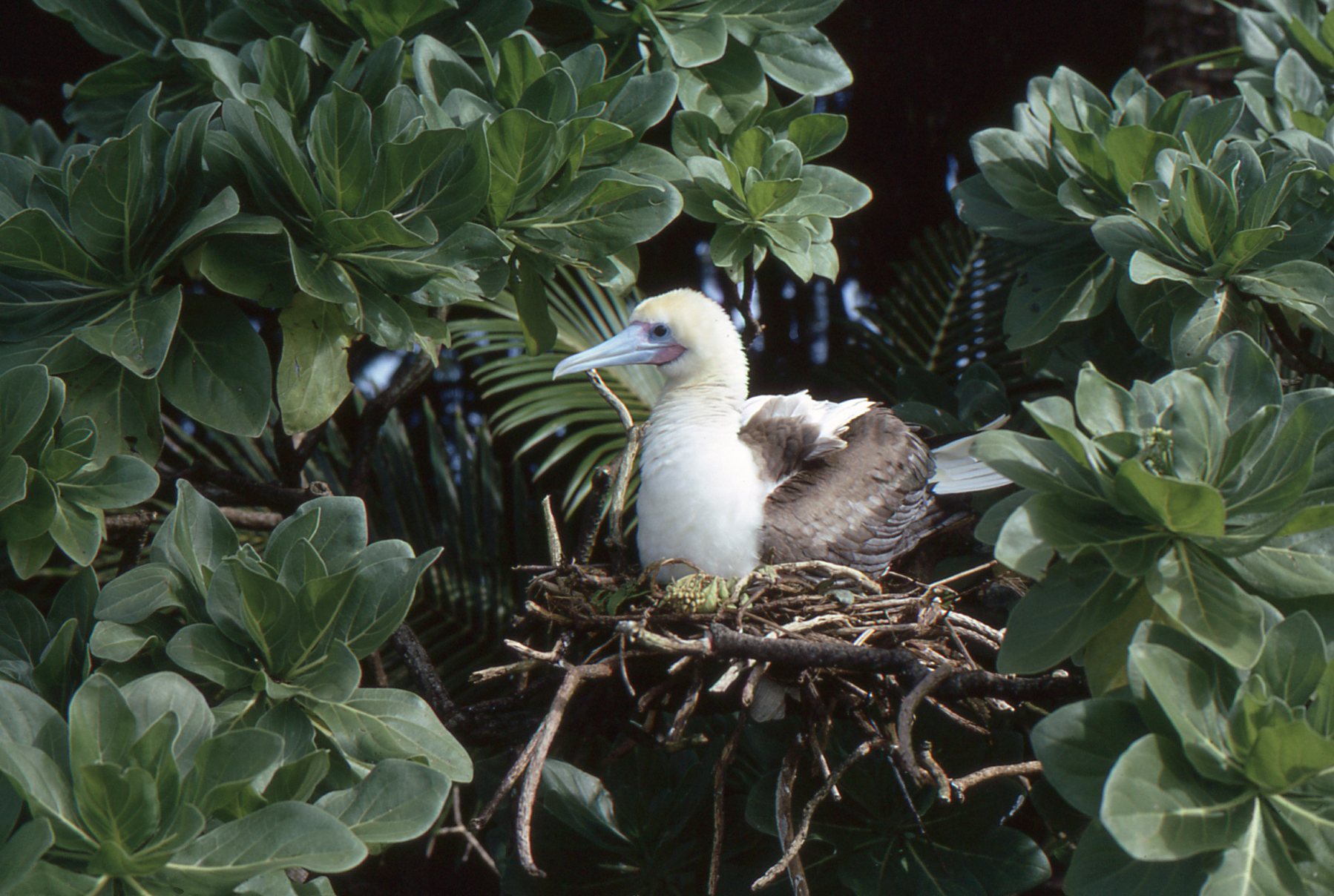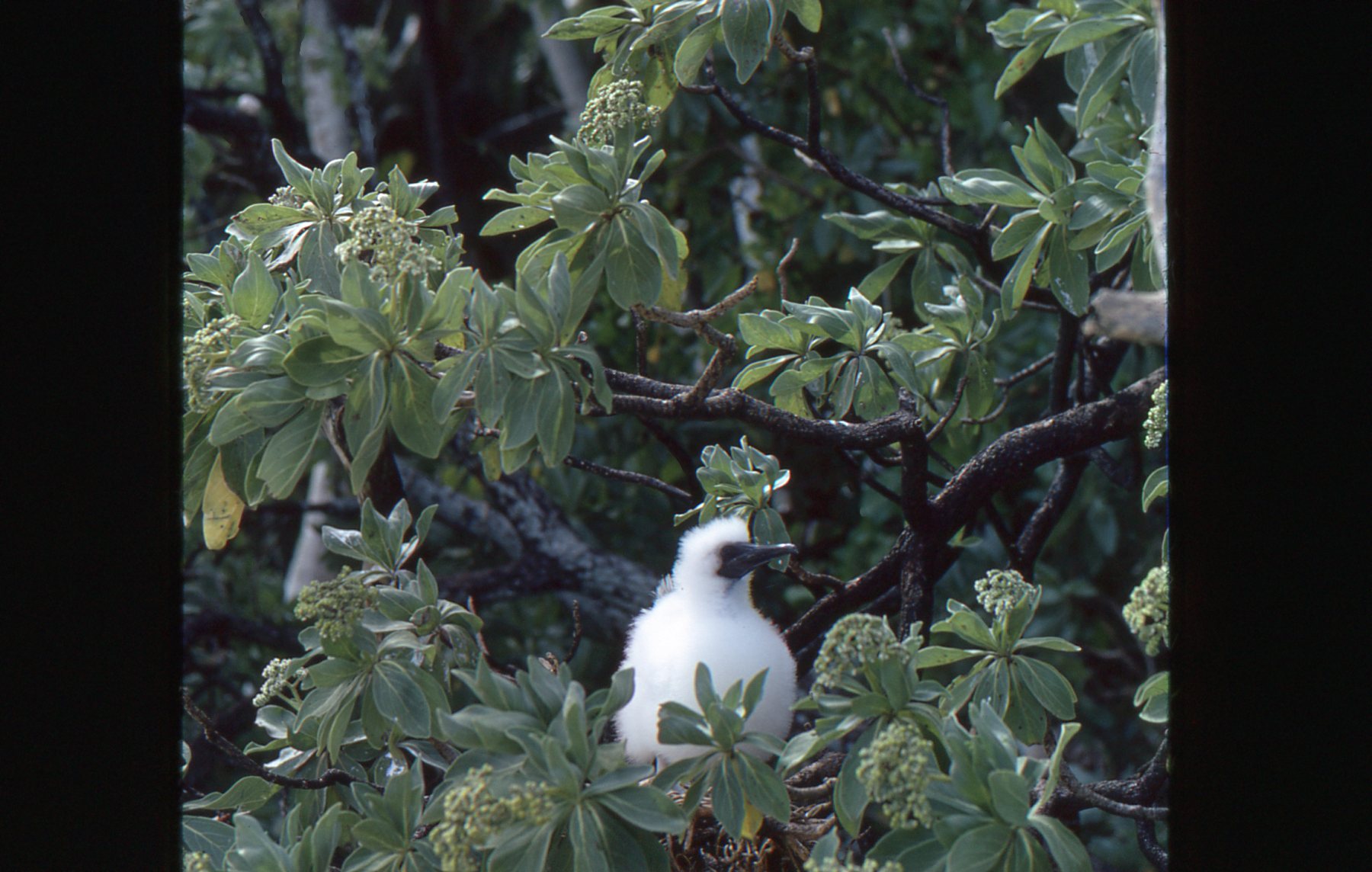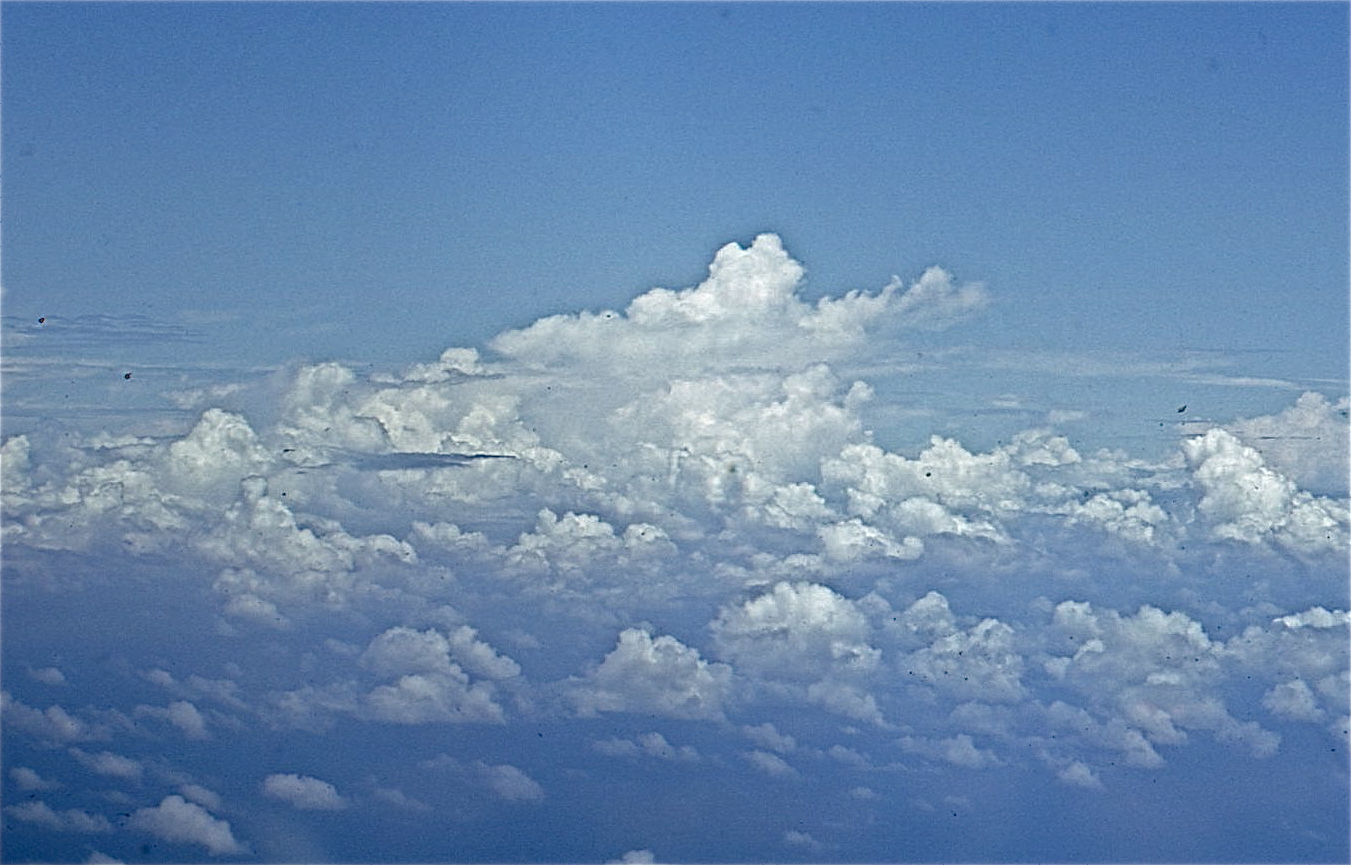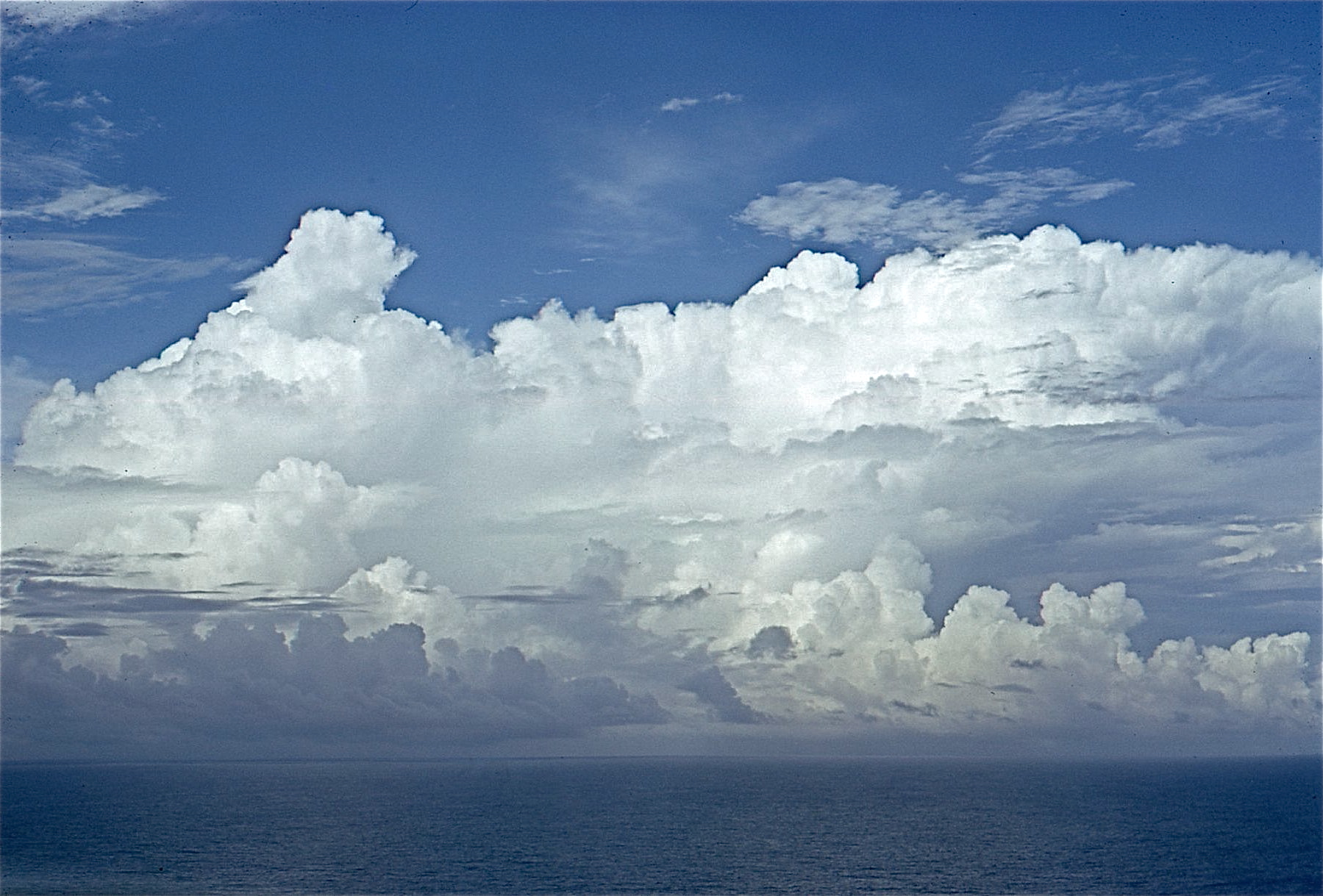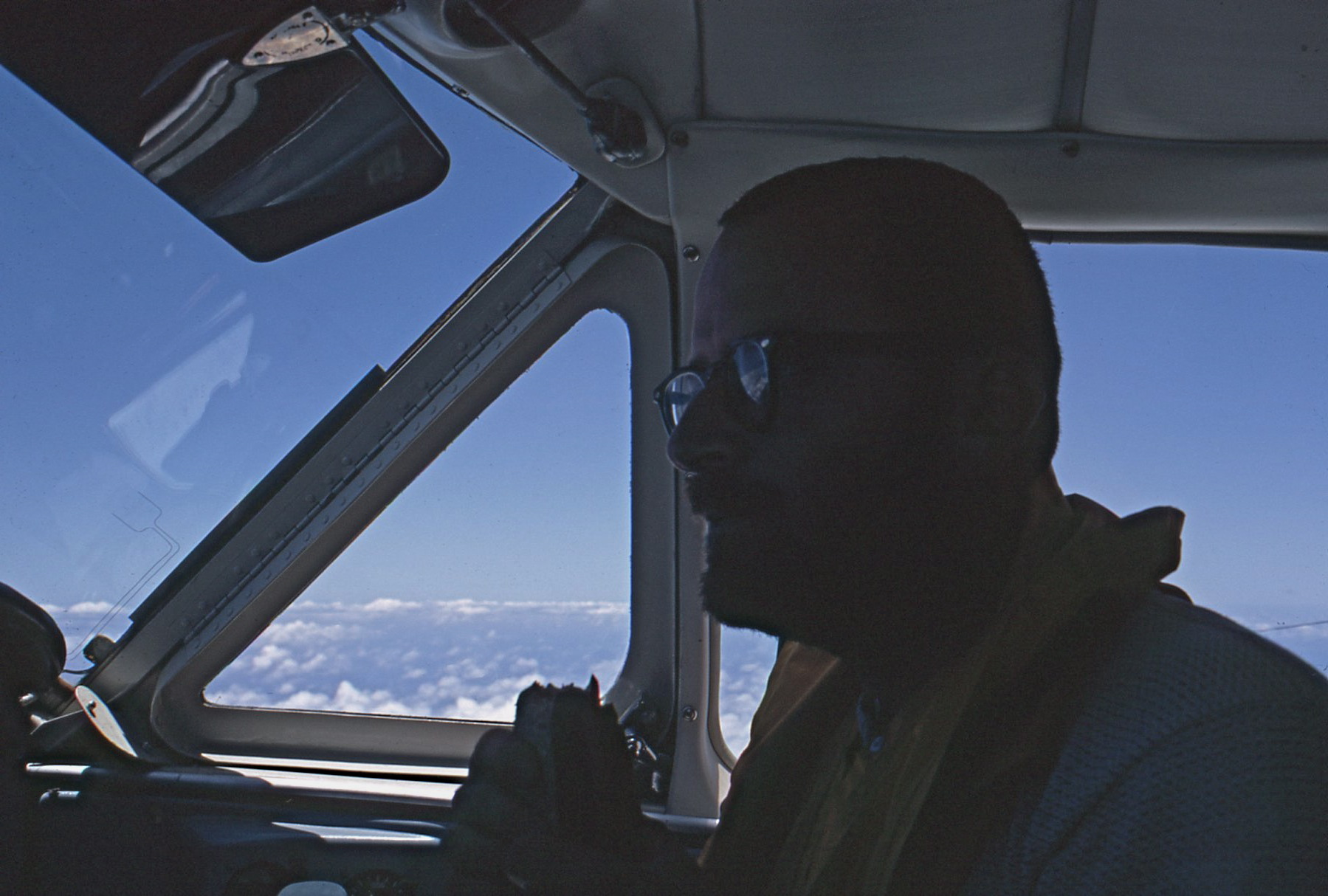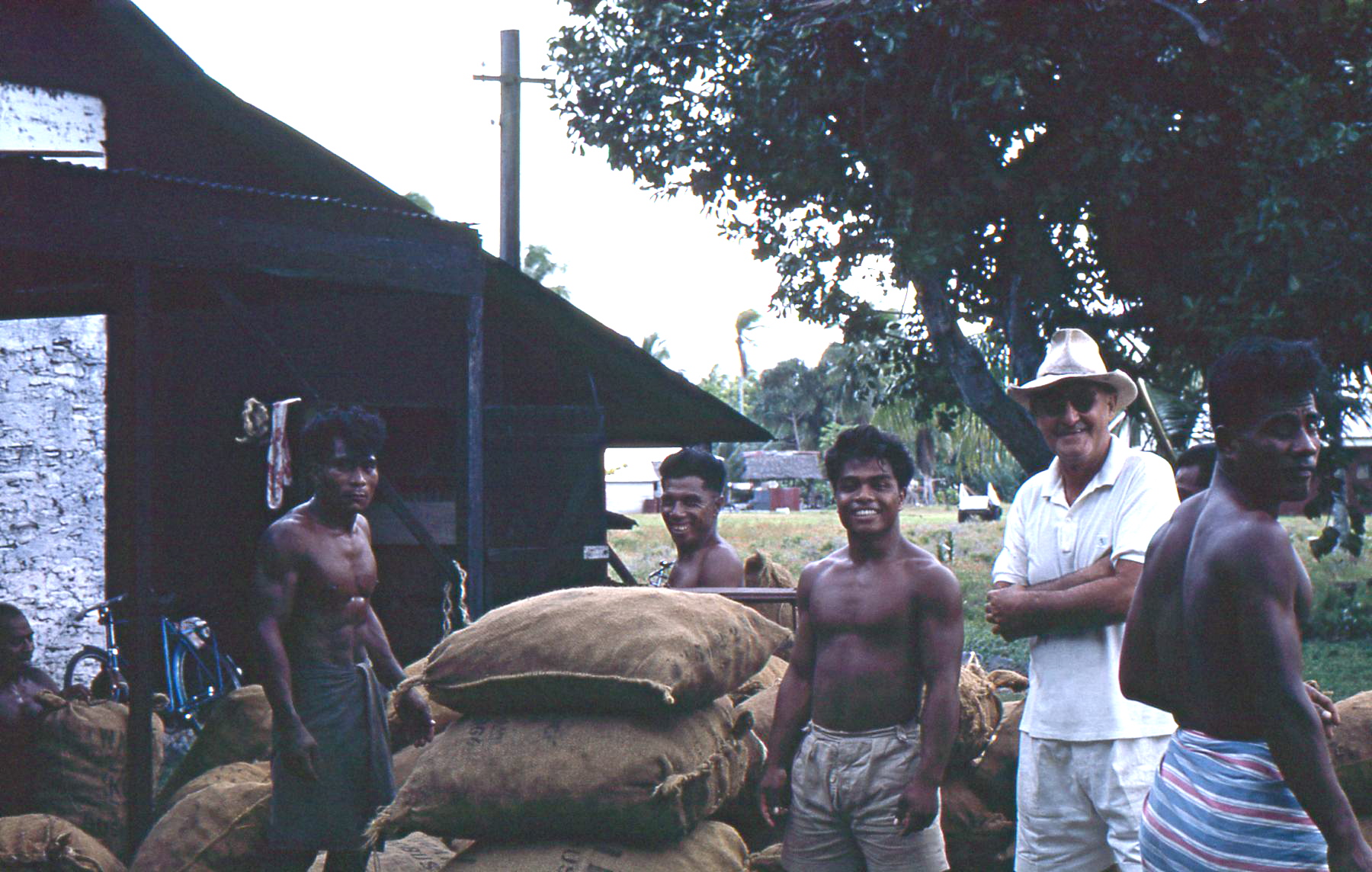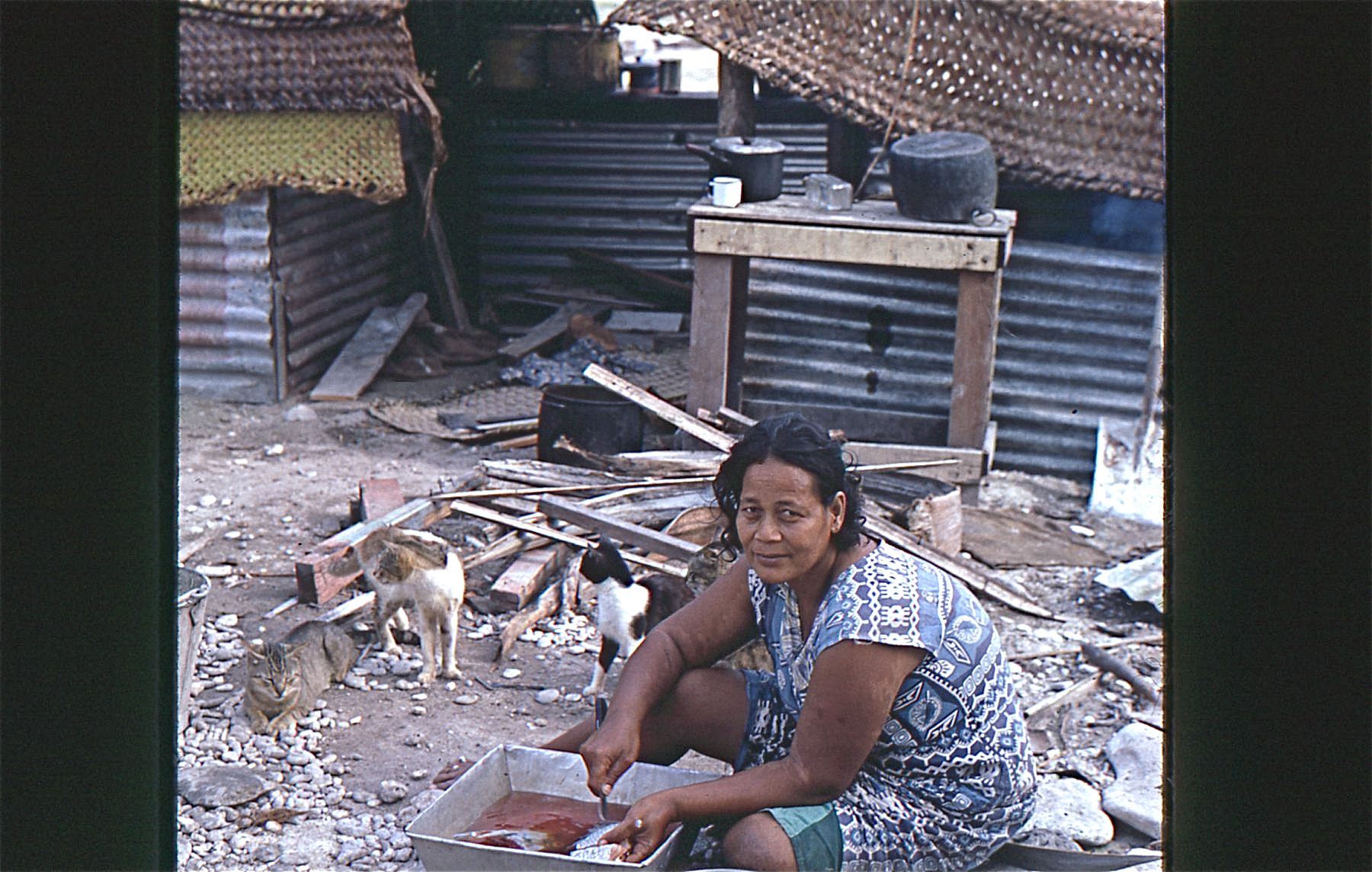Ed Zipser Photo Gallery
All photos and captions courtesy of Ed Zipser (Click Images for Full Resolution).
Note: This gallery has been adapted from an archived EOL page.
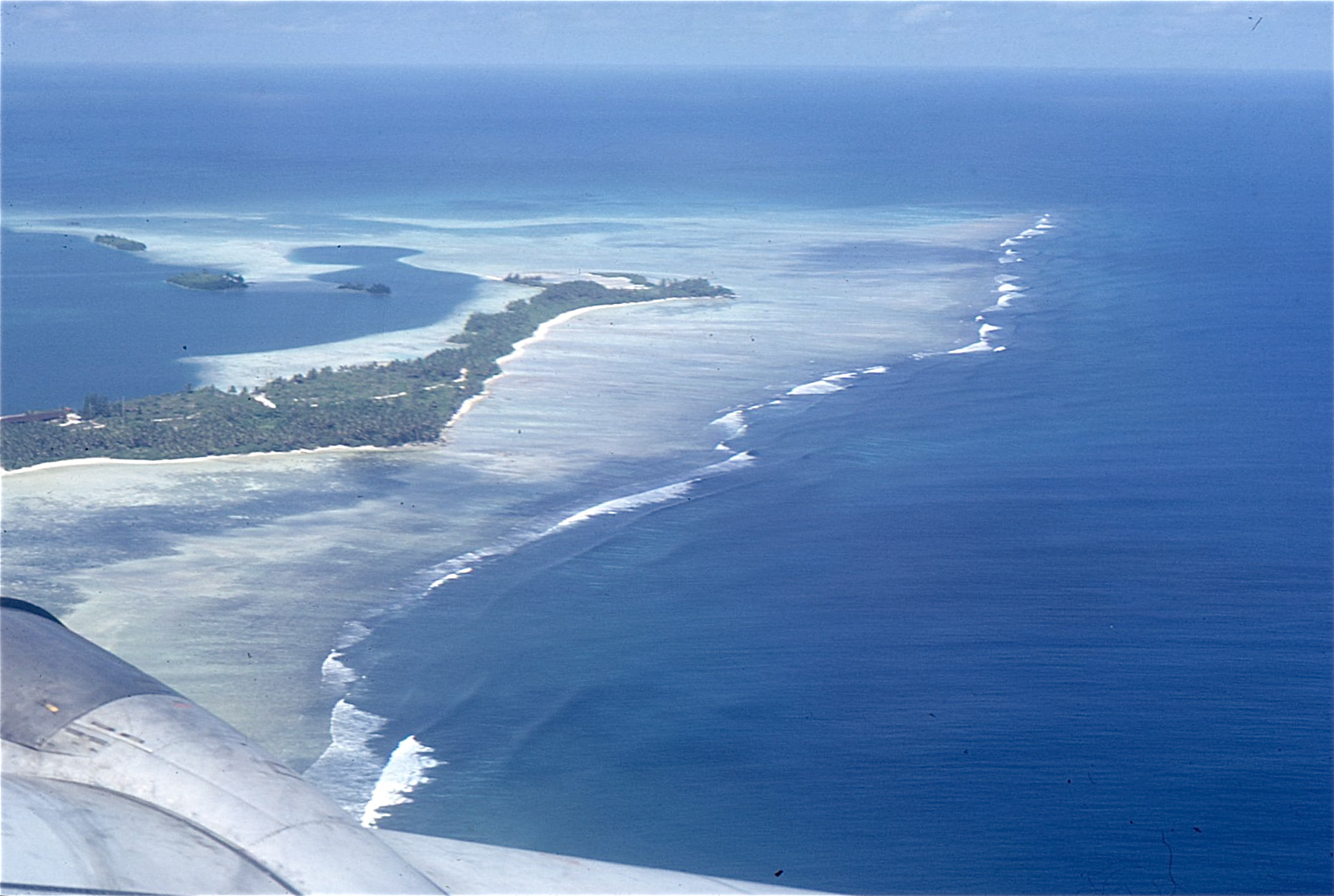 |
Part of Palmyra atoll on approach
 |
Palmyra runway. The nearest 5000 ft was bulldozed before anything could land; the distant 1000 ft was allowed to stay covered with brush to preserve nesting habitat for uncountable numbers of Sooty Terns.
 |
(left to right:) Steve Cox, Fritz Hasler, Stefan Hastenrath, and Bill Jones. Looks like one of the USAF KC-97 supply flights unloading.
 |
Bob James, Jim Maynard, EJZ, and Steve Cox. I still have that fishing float in my home on top of a bookcase.
 |
Crab race on Fanning Island. Not sure how much was wagered on the outcome. Not much skill involved unless you knew which crab would go fast.
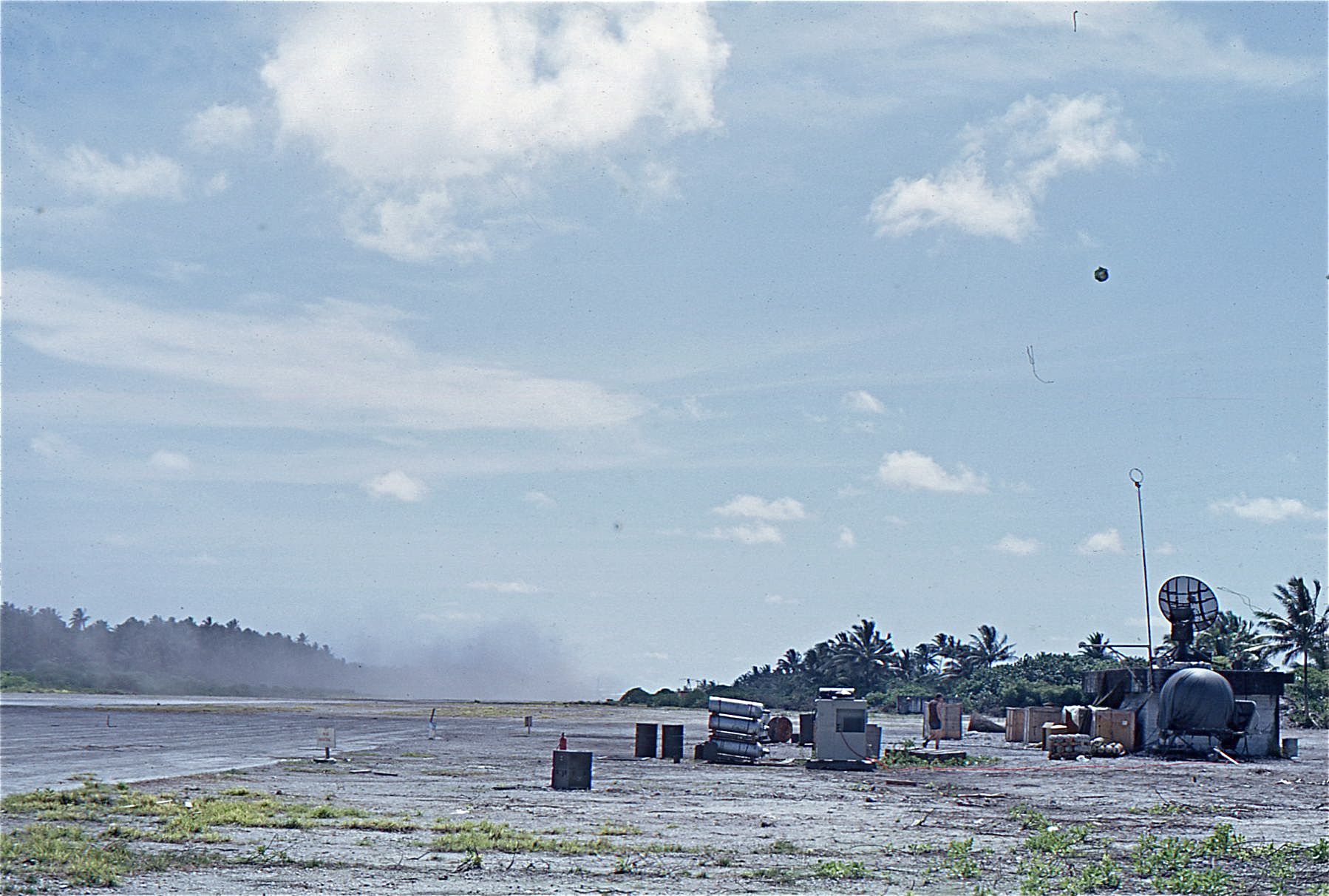 |
Rawinsonde site on the south side of the Palmyra runway. The hydrogen generator was called "Flaming Mary". That may be the instrument package just above the antenna.
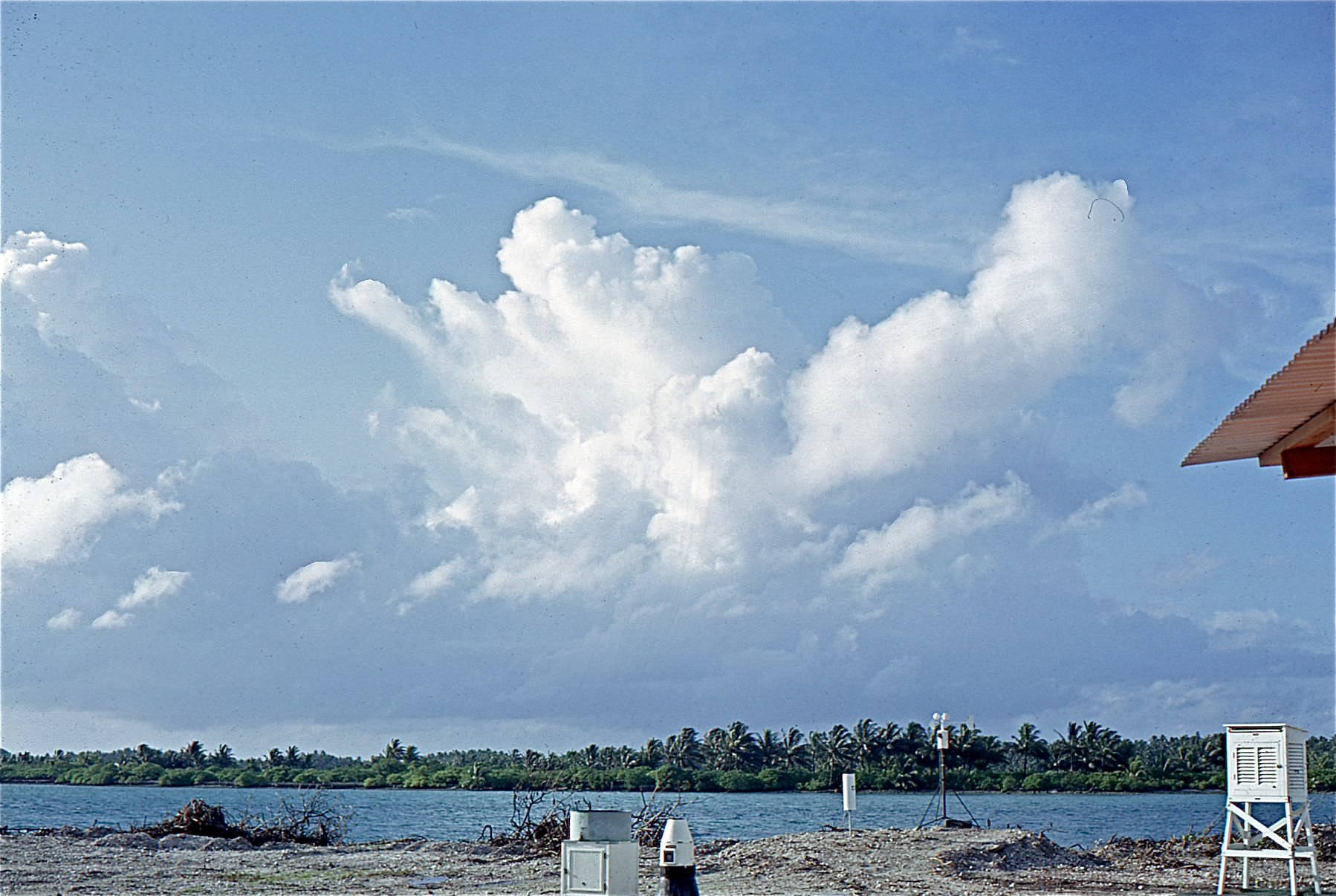 |
Surface observing site. south side of Palmyra runway, very close to the rawin site, as close to the lagoon as we could get it to minimize island effect on the readings. We had 2 additional sites upwind of this to get a better estimate of the island effect, which was not at all negligible (e.g. 40% difference in wind speed).
 |
Brown booby nesting. They were abundant.
 |
Brown booby chick.
 |
Typical cumulus congestus from NCAR Queen Air 304D at 10,000 ft. Looking north, showing wind shear from east below about 2 km, but westerly shear above 2 km, a typical wind profile.
 |
Fairly typical deep convective cloud, shearing from the west in the upper troposphere, from the NCAR Queen Air at 500 ft altitude. The low altitude was essential for determining conditions in the subcloud layer.
 |
Ed Zipser in right seat of Queen Air. Photo by pilot, Lloyd Newcomer.
 |
Fanning Island. Copra plantation manager Philip Palmer and workers, basically endentured servants from the Gilbert Islands. Palmer always had us bring him good scotch whiskey on our supply runs.
 |
Home life on Fanning Island for Gilbert Islanders working on the Copra plantation.
LIE Publications
LIE Data Documentation
LIE Related Links
